Daiki Hashimoto’s redemption earns Japan thrilling gymnastics gold as China collapse
China were leading heading into the final round of the men’s all-around team final but blew their advantage, as Team USA’s first bronze since 2008 edged Great Britain to fourth
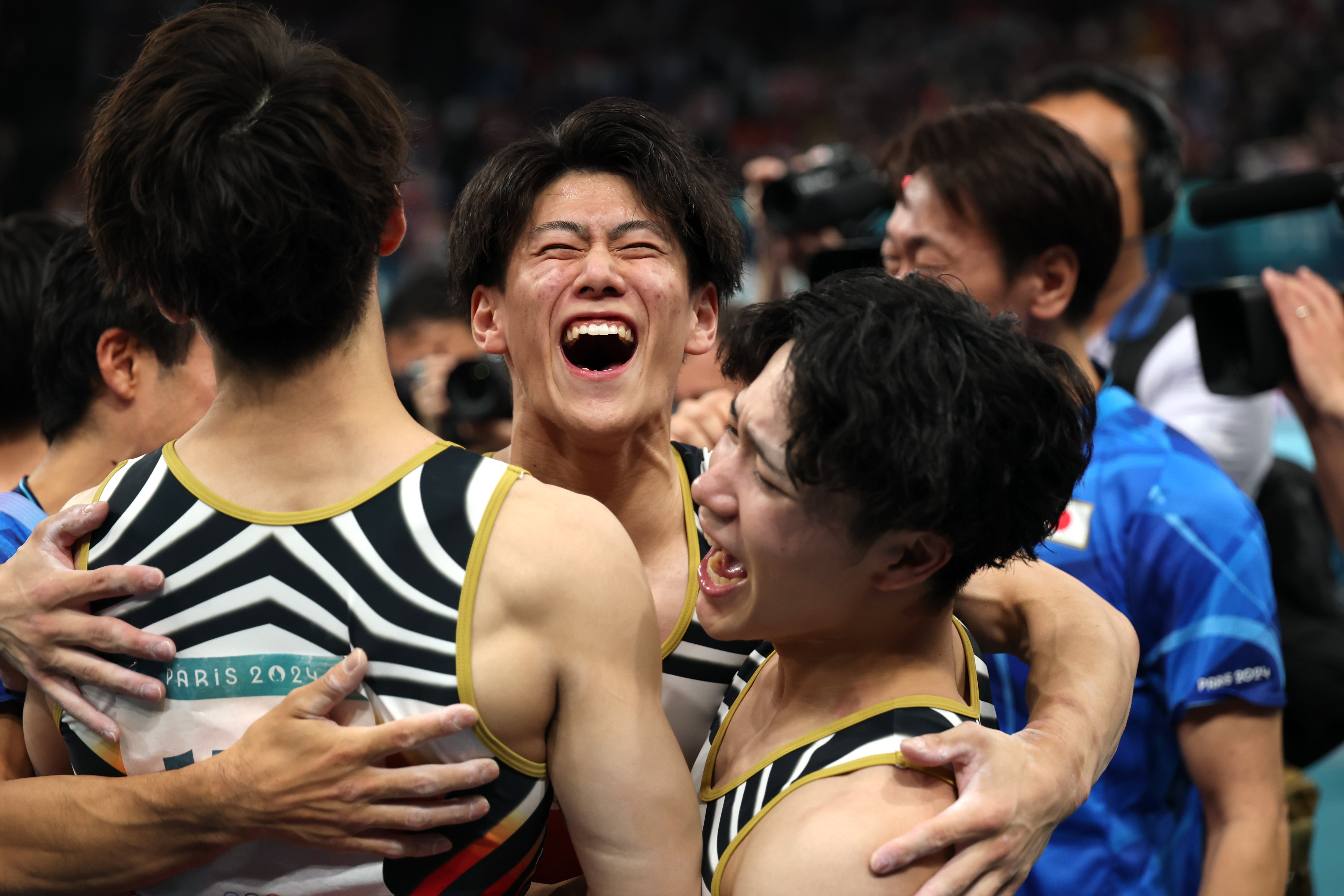
As Daiki Hashimoto crossed his hands on the pommel horse, in a routine he had practiced countless times to the point of perfection, the defending Olympic champion in the individual all-around felt his grip loosen. From a golden Olympics in Tokyo three years ago, where he was Japan’s face of the Covid games, Hashimoto’s return to Paris was quickly turning into a nightmare. Having crashed out in qualifying for the high bar final on Saturday, surrendering the defence of one of his individual titles, another slip looked to have cost Japan in their bid for all-around team gold. By the halfway stage, the eight-time champions were fifth, lagging behind China.
At that stage, China were heading for a dominant victory. After excelling on the rings and the parallels bars, China held a three-point lead going into the final rotation on the high bar. Having steadied their position to sit in second place but with nothing to lose, Japan ramped up the difficulty on their final rotation. Up first, Takaaki Sugino attempted the hardest routine of the night and when he landed it perfectly and the crowd erupted, the arena in Paris Bercy seemed to shake before China did too.
The previously immaculate Xiao Ruoteng, a silver medallist in the individual all-around three years ago, took a heavy step on his dismount, opening the window of opportunity to Japan. Then China’s Su Wie stepped up: covering his hands with chalk, only to fall as he rotated around the bar. Su grimaced, took a moment, and got back to his feet, only to lose control for a second time and crumple to the mat in a heap. Suddenly, the gold was back on. Japan needed a miracle in the shape of errors from China, but they had been granted one.
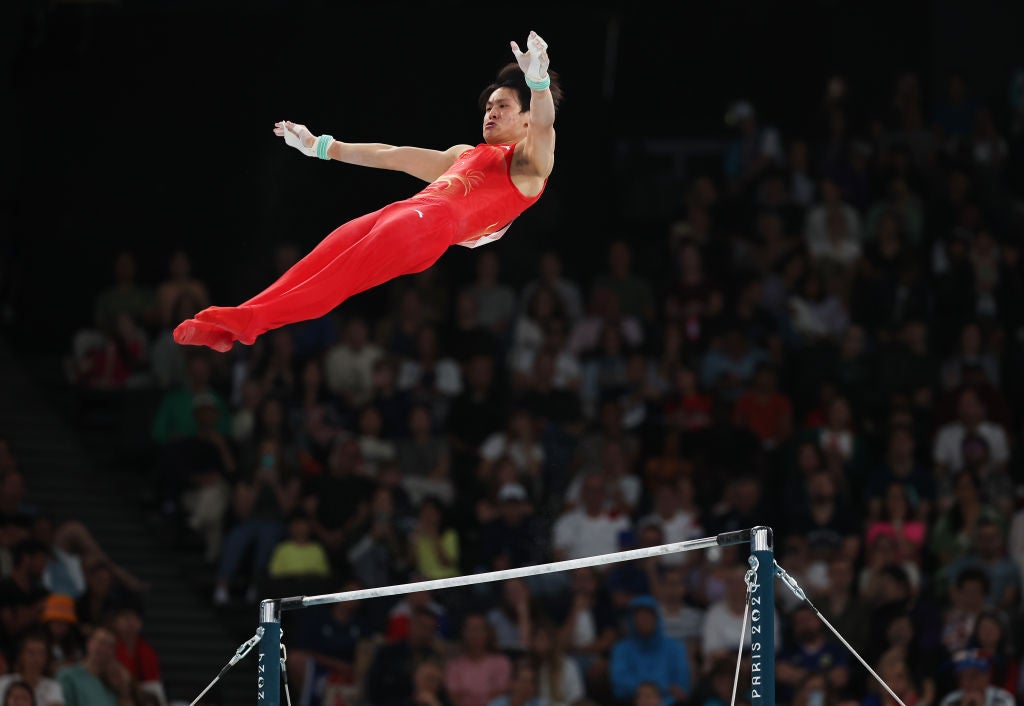
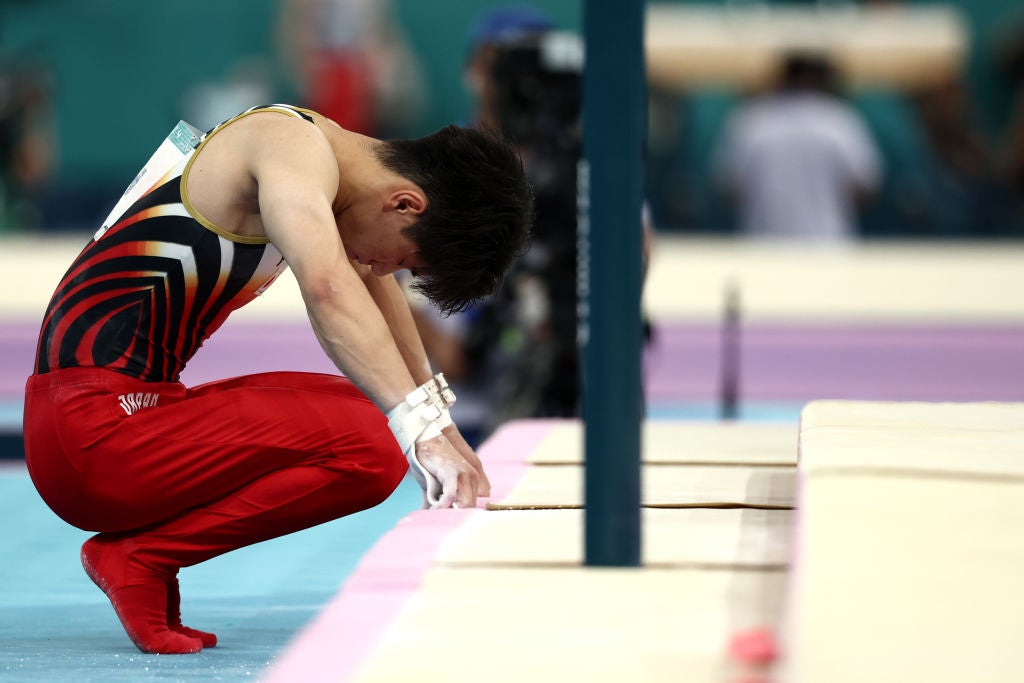
And so, after seemingly costing his country a shot at gold just an hour before, Hashimoto stood with his chance at redemption on the same apparatus he himself fell on just two days ago. The arena in Paris Bercy that had been raucous all night was silent, apart from Hashimoto’s teammates bellowing in support. In the hush, he appeared immaculate: two final rotations around the bar followed by a double-twist, legs spinning. And in that moment, Hashimoto, pointing to his lips, knew he had done enough. He fell into the embrace of their teammates and they too knew they had won gold.
“Even before the performance, my eyes were a bit teary, and after the landing, I felt happiness,” he said. “There was some fear, as my performance would determine the medal’s colour. But seeing my teammates fight bravely inspired me to do the same. Carrying everyone’s hopes, I fought and felt happy in that moment.”
But it was not over. As Su stared into the distance, the enormity of his error sinking in, the fate of the gold rested in the hands of Boheng Zhang, the top overall scorer from qualifying, having set the leading score on high bars. Zhang had to outperform his mark from qualifying but faced with a sizable gap to overturn, and in the pressure of the final act of the final, he could not do enough. As Zhang’s score was announced, it was revealed that Japan were champions by 0.532 points.
It sparked delirium:everyone in the Japan team appeared to be in tears, Hashimoto surrounded in a mob, Su looked frozen, the beaten Xiao was sobbing huge gulps on the floor. And there, the margins between defeat and triumph, heartbreay and joy, had rarely appeared so fine.
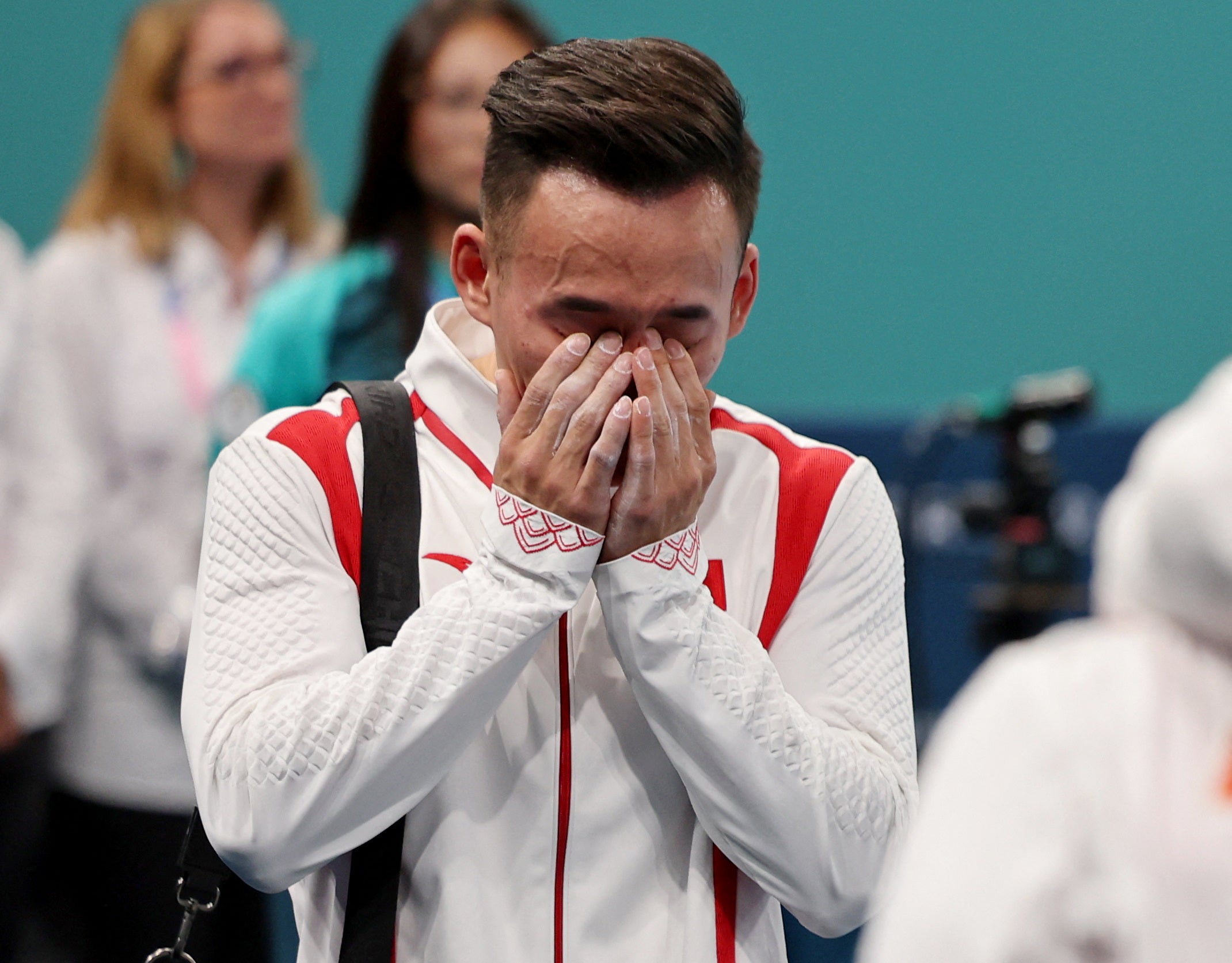
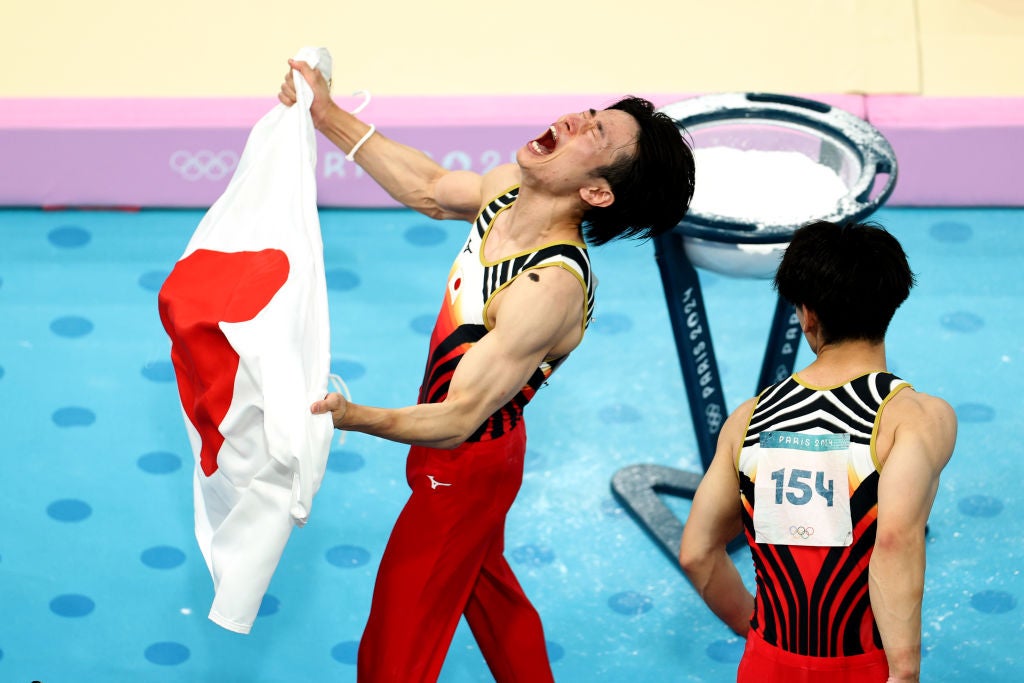
The dramatic conclusion in the race for gold almost obscured another remarkable story from the final, that of the United States ending a 16-year wait for a medal in the men’s gymnastics. Their bronze medal was secured on a wave of ultra pumped-up, “let’s goooo” Alpha energy. Led by the electricity of Asher Hong on the vault and Richard Frederick on the horizontal bar, it was sealed by the composure of Stephen Nedoroscik on the pommel horse. In what was Nedoroscik’s only event of the night, his sole contribution was a medal-winning one. The USA’s wild celebrations of winning bronze stood in sharp contrast to China’s devastation.
It also meant Team GB were denied, with the team of Max Whitlock, Joe Fraser, Jake Jarman, Luke Whitehouse and Harry Hepworth just missing out on the podium despite impressive individual performances. “It was hard. I’m really gutted actually,” Whitlock said. “Fourth is always difficult, we’ve come fourth quite a few times at the Olympic Games now. Right now, it feels quite raw but overall we can be quite proud. Looking at each and every performance we’ve done, we did everything we possibly could.”
Join our commenting forum
Join thought-provoking conversations, follow other Independent readers and see their replies
Comments
Bookmark popover
Removed from bookmarks